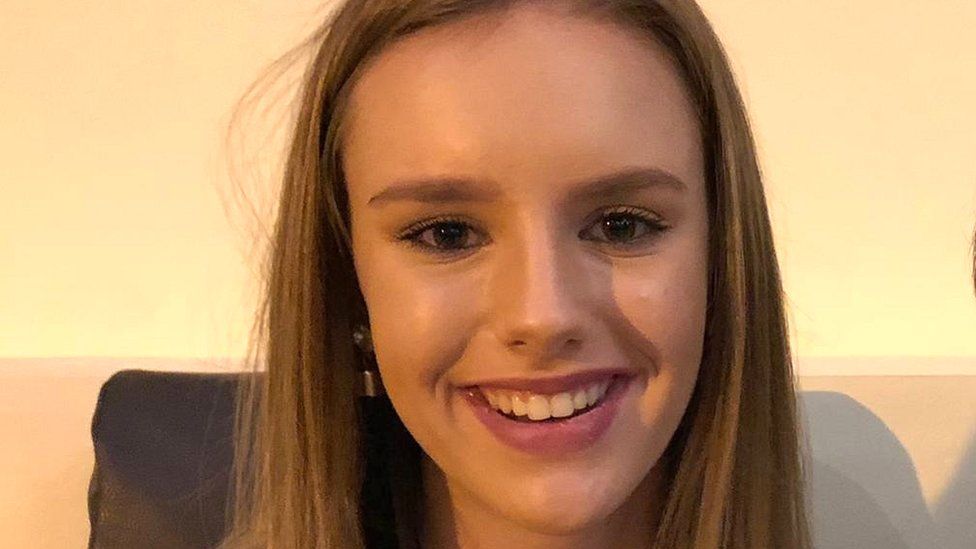ARTICLE AD BOX
 Image source, Family photo
Image source, Family photo
Annabel Wright was found dead at her home near Ripon in May 2019
The mother of a 15-year-old girl who took her own life after using an anti-acne drug has said proposed new safety measures will not prevent more deaths.
The family of Annabel Wright, from Ripon, believes Roaccutane was responsible for her death, despite a coroner ruling out any direct link.
Others using the drug have died by suicide or reported psychotic symptoms.
Helen Wright, Annabel's mum, said the measures proposed by the Commission on Human Medicines were "lip service".
The commission's review into the drug, also known as isotretinoin, concluded its benefits outweighed the risks.
It said the drug was an effective treatment for cases of severe acne which had not responded to usual treatments.
Gaps in the available evidence meant it was not possible to say that Roaccutane definitely caused many of the psychiatric and sexual side effects reported by patients, the expert group added.
The commission made a number of recommendations to improve its safety, which are now expected to be adopted by the Medicines and Healthcare Regulatory Agency (MHRA).
They include tighter controls on prescribing to under-18s by requiring a sign-off by two prescribers - usually doctors - when the medicine is first prescribed to people aged 12 to 18.
It also recommends families should be given better information and patients better monitored.
Image source, Getty Images
Image caption,Roaccutane, made by Roche, has been available for use in the UK since the early 1980s
However, responding to the commission's findings, Mrs Wright renewed her call for the drug to be banned for under-18s.
"I would argue that to use a drug to treat a non-life threatening condition that is known to cause suicide and psychological effects is immoral," she said.
"Even if that risk is low, it's still a risk and no-one knows who it's going to affect."
Mrs Wright's daughter had been prescribed Roaccutane in the months before her death in May 2019, but they were not properly warned about its rare side effects, she said.
At the inquest in December 2021 into the teenager's death, coroner Jonathan Leach ruled there was "no evidence" it was "caused or contributed to by isotretinoin".
Despite the coroner's conclusion, Mrs Wright said she believed the drug was "absolutely the reason" why her daughter took her own life and that she had since heard from other families who said they had been affected.
"After what happened to Annabel, I ended up being in contact with a lot of people who'd had bad, bad psychiatric side effects from being on this drug," she said.
"One girl said to me she had read about what happened to Annabel and described she was perfectly happy and had been taking the pill for a few months, but one night was all of a sudden overcome with this suicidal wave.
"How she described what happened to her is what I'm convinced happened to Annabel."
Dr Alison Cave, MHRA Chief Safety Officer, said severe acne could have a "significant impact on patient's wellbeing" and for those individuals "isotretinoin may be the only effective treatment option".
She said the commission concluded the drug's benefits outweighed the risks "but action should be taken to make sure patients are better aware of them, that they are carefully monitored throughout treatment, and that for patients under the age of 18 there is additional scrutiny on isotretinoin prescribing".
Roche, which manufactures Roaccutane, said it had already taken steps to implement the recommendations from the review.
It said: "Millions of patients worldwide have taken Roaccutane, but like all medications, it can have side effects.
"This report supports our longstanding recommendation that it is prescribed very carefully, that patients are fully informed as to what to expect when they take it and that they are monitored closely to ensure they get the ongoing care they need."
Follow BBC Yorkshire on Facebook, Twitter and Instagram. Send your story ideas to yorkslincs.news@bbc.co.uk or send video here.
Related Internet Links
The BBC is not responsible for the content of external sites.

 2 years ago
53
2 years ago
53








 English (US) ·
English (US) ·